
Ningaloo Reef: A Pristine Underwater Paradise
Ningaloo Reef, located on the northwest coast of Australia, is one of the longest fringing coral reefs in the world. This UNESCO World Heritage site offers a breathtaking underwater world teeming with vibrant marine life, including over 500 species of fish and 300 varieties of coral. The crystal-clear waters and the reef's proximity to the shore make snorkelling and diving easily accessible for visitors of all skill levels. Beyond its underwater allure, Ningaloo Reef is famed for its seasonal whale shark migration. Between March and July, these gentle giants can be seen gliding gracefully through the waters, offering an awe-inspiring experience for snorkelers and divers. Humpback whales also frequent the area from June to November, adding to the spectacle of marine life. The surrounding Cape Range National Park offers stunning landscapes with rugged gorges, limestone ranges, and pristine beaches. Visitors can explore walking trails, enjoy scenic drives, or simply relax on the sandy shores. The combination of marine and terrestrial wonders makes Ningaloo Reef a unique and unforgettable destination for nature lovers.
Local tips in Ningaloo Reef
- Best time to visit is between March and July to see the whale sharks.
- Bring eco-friendly sunscreen to protect the reef's delicate ecosystem.
- Book guided tours in advance, especially during peak season.
- Stay hydrated and protect yourself from the sun with hats and long sleeves.
- Consider renting a car to explore the surrounding Cape Range National Park.
Ningaloo Reef: A Pristine Underwater Paradise
Ningaloo Reef, located on the northwest coast of Australia, is one of the longest fringing coral reefs in the world. This UNESCO World Heritage site offers a breathtaking underwater world teeming with vibrant marine life, including over 500 species of fish and 300 varieties of coral. The crystal-clear waters and the reef's proximity to the shore make snorkelling and diving easily accessible for visitors of all skill levels. Beyond its underwater allure, Ningaloo Reef is famed for its seasonal whale shark migration. Between March and July, these gentle giants can be seen gliding gracefully through the waters, offering an awe-inspiring experience for snorkelers and divers. Humpback whales also frequent the area from June to November, adding to the spectacle of marine life. The surrounding Cape Range National Park offers stunning landscapes with rugged gorges, limestone ranges, and pristine beaches. Visitors can explore walking trails, enjoy scenic drives, or simply relax on the sandy shores. The combination of marine and terrestrial wonders makes Ningaloo Reef a unique and unforgettable destination for nature lovers.
When is the best time to go to Ningaloo Reef?
Iconic landmarks you can’t miss
Reef Experience
Experience the breathtaking beauty of the Great Barrier Reef with Reef Experience, your ultimate adventure on Australia's stunning coastline.
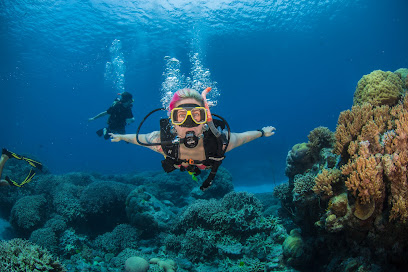
Reef Encounter
Dive into adventure with Reef Encounter, your premier tour operator for unforgettable experiences at the Great Barrier Reef, one of nature's most stunning wonders.
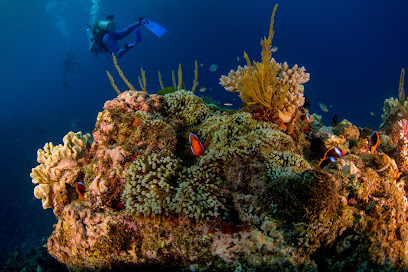
Coral Expeditions- The Northern Territory
Discover the breathtaking beauty and rich culture of Australia's Northern Territory with Coral Expeditions, a premier cruise line offering immersive travel experiences.
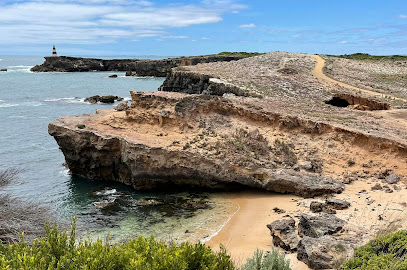
Coral Sea Dreaming Dive and Sail
Explore the breathtaking Great Barrier Reef with Coral Sea Dreaming's expert diving and sailing tours in Cairns, Australia.
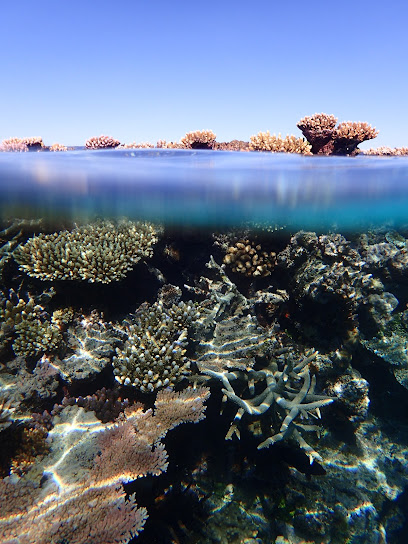
Kimberley Coastal Camp
Experience the breathtaking beauty of Western Australia at Kimberley Coastal Camp, where nature and luxury meet in perfect harmony.

Unmissable attractions to see
Emporium Melbourne
Discover the ultimate shopping experience at Emporium Melbourne, featuring luxury brands, diverse dining, and vibrant local culture in a modern setting.
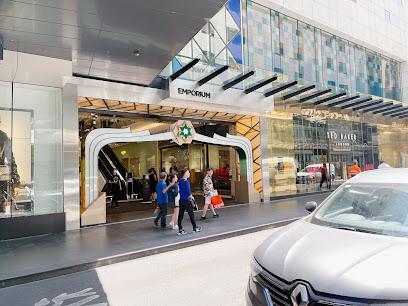
The Princess Theatre
Discover the charm of The Princess Theatre, an iconic Melbourne venue that showcases the best in performing arts and live entertainment.
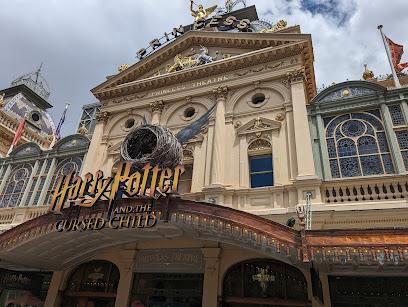
Young and Jacksons
Experience the historic charm and vibrant atmosphere of Young and Jacksons, a must-visit pub in the heart of Melbourne, Australia.
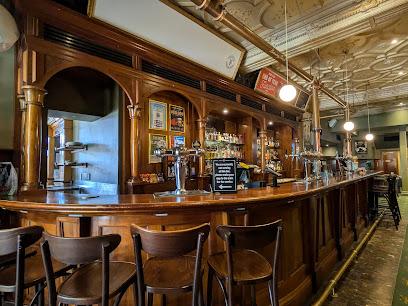
Hotel Esplanade
Experience the vibrant atmosphere at The Esplanade in St Kilda, where live music, delicious Cantonese cuisine, and stunning waterfront views await.
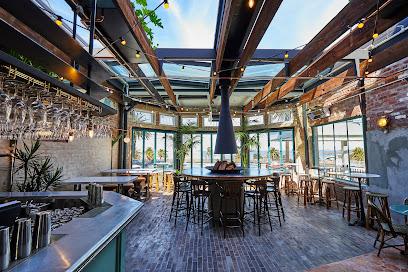
Searoad Ferries
Experience the stunning coastal beauty of Victoria aboard Searoad Ferries, the perfect way to explore the Mornington Peninsula from the water.

Sidney Myer Music Bowl
Discover the Sidney Myer Music Bowl, Melbourne's premier outdoor venue for live music and cultural experiences amidst stunning gardens and vibrant city life.
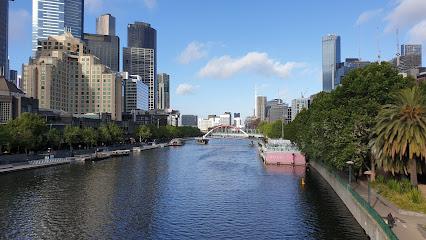
Southern Cross
Discover Southern Cross Station, Melbourne's architectural marvel and transportation hub, seamlessly connecting you to the heart of the city and beyond.
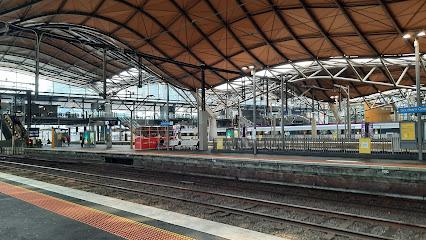
Margaret Court Arena
Discover the excitement of Margaret Court Arena, Melbourne's premier venue for sports and entertainment, and immerse yourself in an unforgettable experience.

Melbourne River Cruises
Discover Melbourne's charm from the water with Melbourne River Cruises, offering stunning views and unforgettable experiences on the Yarra River.
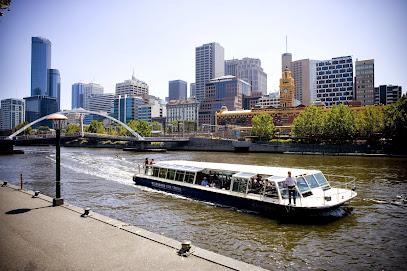
360Q
Discover exquisite dining at 360Q in Queenscliff, where stunning bay views meet locally sourced culinary delights.

Skydive Melbourne
Experience the thrill of skydiving over St Kilda's stunning coastline, capturing breathtaking views and unforgettable moments in Melbourne's adventure capital.
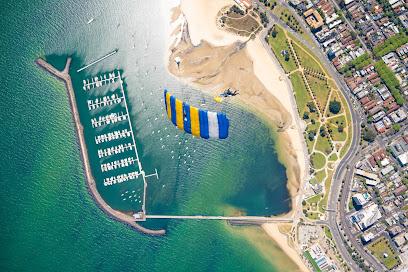
Queenscliff Harbour
Experience the stunning coastal beauty and rich maritime history at Queenscliff Harbour, a delightful destination for every traveler.
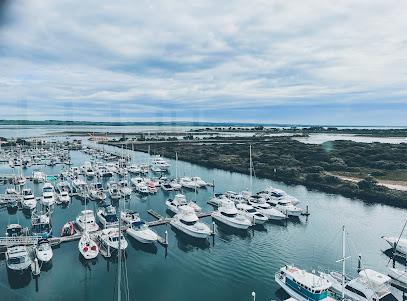
Kayak Melbourne
Explore Melbourne’s stunning waterways with Kayak Melbourne, the go-to destination for unforgettable kayaking adventures in Docklands.
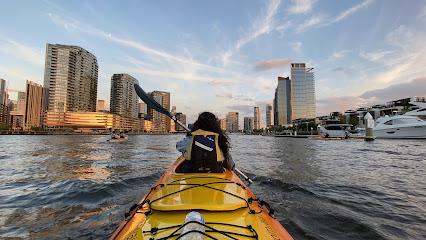
The Rose Street Artists’ Market
Discover unique local art, handmade crafts, and delicious treats at Fitzroy's Rose Street Artists' Market, a vibrant hub for creativity and culture.
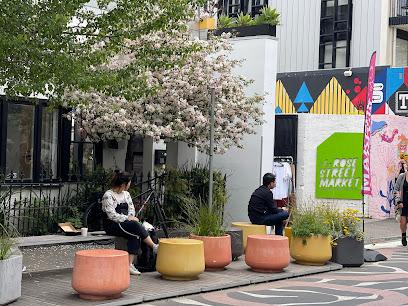
Scotchmans Hill Winery
Discover the exquisite wines and stunning views at Scotchmans Hill Winery, a premier destination in Drysdale, Victoria for wine lovers and food enthusiasts.
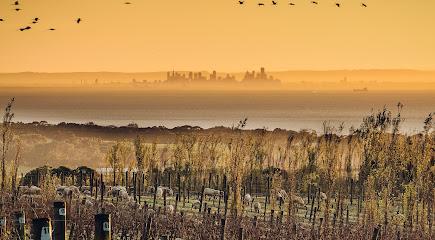
Markets, malls and hidden boutiques
Sea Kayak Jervis Bay
Discover the breathtaking beauty of Jervis Bay through kayaking adventures. Explore stunning coastlines and vibrant marine life at Sea Kayak Jervis Bay.
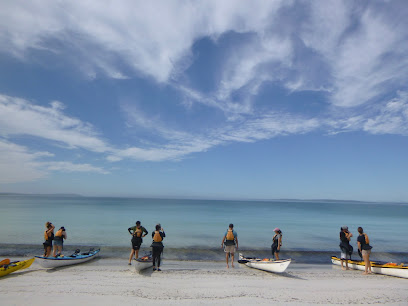
Manly Harbour Village
Experience the vibrant atmosphere of Manly Harbour Village with its eclectic shops, delightful dining options, and stunning waterfront views.
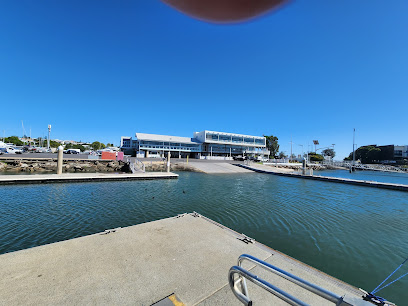
Snorkel and Dive Safari Altona Beach
Explore the vibrant underwater world at Snorkel and Dive Safari Altona Beach, offering unforgettable diving and snorkeling experiences in Victoria's pristine waters.

Liv For The Sea Freediving
Discover the underwater wonders with Liv For The Sea Freediving, your premier dive shop for unforgettable aquatic adventures and marine conservation.
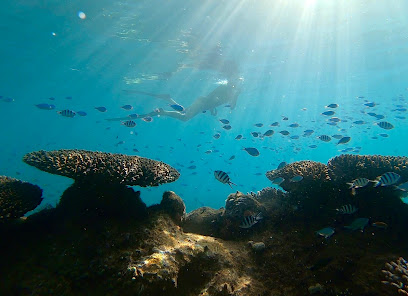
Kimberley Coastal Camp
Experience the pristine wilderness of Kimberley Coastal Camp, where adventure meets relaxation amidst breathtaking coastal beauty.

Salty Swims
Explore the underwater wonders with Salty Swims, your ultimate boat tour agency for thrilling marine adventures and unforgettable experiences.
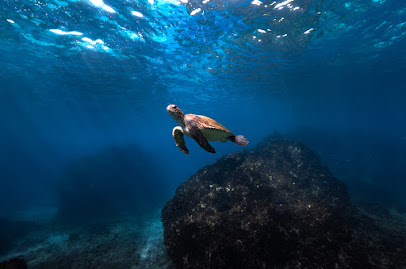
Coins Australia Pty Ltd
Explore Coins Australia Pty Ltd in Sydney—your ultimate destination for unique coins and collectibles that celebrate history and culture.
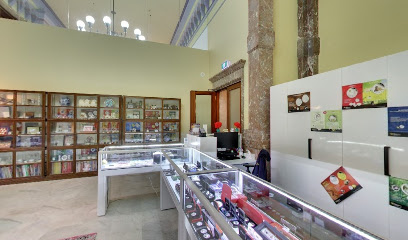
Liveaboard Diving
Explore the breathtaking depths of the Great Barrier Reef with Liveaboard Diving, a top-rated diving school in Cairns City, Australia.
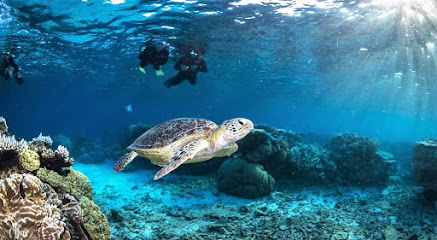
Local Phrases about Ningaloo Reef
-
- HelloG'day
['G'day] - GoodbyeSee ya
[See ya] - YesYeah
[Yeah] - NoNah
[Nah] - Please/You're welcomePlease/No worries
[Please/No worries] - Thank youCheers
[Cheers] - Excuse me/SorryPardon me/Sorry
[Pardon me/Sorry] - How are you?How ya goin'?
[How ya goin'?] - Fine. And you?Good. And you?
[Good. And you?] - Do you speak English?You speak English?
[You speak English?] - I don't understandI don't get it
[I don't get it]
- HelloG'day
-
- I'd like to see the menu, pleaseCan I check the menu, mate?
[Can I check the menu, mate?] - I don't eat meatI don't eat meat, mate
[I don't eat meat, mate] - Cheers!Cheers!
[Cheers!] - I would like to pay, pleaseCan I settle the bill, mate?
[Can I settle the bill, mate?]
- I'd like to see the menu, pleaseCan I check the menu, mate?
-
- Help!Help!
[Help!] - Go away!Bugger off!
[Bugger off!] - Call the Police!Ring the cops!
[Ring the cops!] - Call a doctor!Get a doctor!
[Get a doctor!] - I'm lostI'm lost, mate
[I'm lost, mate] - I'm illI'm not feeling well
[I'm not feeling well]
- Help!Help!
-
- I'd like to buy...I wanna grab...
[I wanna grab...] - I'm just lookingJust browsing, mate
[Just browsing, mate] - How much is it?How much for this?
[How much for this?] - That's too expensiveThat's dear, mate
[That's dear, mate] - Can you lower the price?Any chance for a discount?
[Any chance for a discount?]
- I'd like to buy...I wanna grab...
-
- What time is it?What's the time?
[What's the time?] - It's one o'clockIt's one o'clock
[It's one o'clock] - Half past (10)Half past ten
[Half past ten] - MorningMornin'
[Mornin'] - AfternoonArvo
[Arvo] - EveningEvenin'
[Evenin'] - YesterdayYesty
[Yesty] - TodayToday
[Today] - TomorrowTomorrow
[Tomorrow] - 1One
[One] - 2Two
[Two] - 3Three
[Three] - 4Four
[Four] - 5Five
[Five] - 6Six
[Six] - 7Seven
[Seven] - 8Eight
[Eight] - 9Nine
[Nine] - 10Ten
[Ten]
- What time is it?What's the time?
-
- Where's a/the...?Where's the...?
[Where's the...?] - What's the address?What's the addy?
[What's the addy?] - Can you show me (on the map)?Can you show me (on the map)?
[Can you show me (on the map)?] - When's the next (bus)?When's the next (bus)?
[When's the next (bus)?] - A ticket (to ....)A ticket (to ....)
[A ticket (to ....)]
- Where's a/the...?Where's the...?
History of Ningaloo Reef
-
Ningaloo Reef has been a significant site for the Aboriginal peoples for thousands of years. The region is particularly important to the Baiyungu, Thalanyji, and Yinikurtira people who have lived along the coast and inland areas. The reef and its surrounding lands were essential for their sustenance, providing a rich source of marine life, and they hold a deep spiritual connection to the area.
-
The first known European exploration of Ningaloo Reef was by Dutch sailors in the early 17th century. Notably, the Dutch East India Company ship 'Zuytdorp' wrecked on the coast in 1712. Later, British explorers, including Phillip Parker King, mapped the northwest coast of Australia in the early 19th century, marking the beginning of more detailed Western knowledge of the region.
-
In the 19th and early 20th centuries, the Ningaloo coastline became a hub for the whaling industry. Whalers from America and Europe established temporary camps along the coast to process their catches. The remnants of these whaling stations can still be found today and serve as a stark reminder of the once-thriving industry that had a significant impact on the local marine population.
-
The Vlamingh Head Lighthouse, built in 1912, stands as a testament to the maritime history of the Ningaloo region. The lighthouse was crucial for ensuring the safety of ships navigating the treacherous waters of North West Cape. It played a pivotal role during World War II, serving as a lookout point against potential enemy ships and aircraft.
-
During World War II, Ningaloo Reef and the surrounding areas were of strategic importance. The Learmonth Airbase, built in 1944, was part of the Allied defense strategy in the Pacific. The airbase and the coastline provided critical support for military operations and served as a refueling and repair station for aircraft engaged in the conflict.
-
In the late 20th and early 21st centuries, Ningaloo Reef garnered attention for its unique biodiversity, leading to significant marine conservation efforts. In 1987, the Ningaloo Marine Park was established to protect the reef’s delicate ecosystems. Furthermore, in 2011, Ningaloo Coast was inscribed as a UNESCO World Heritage Site, recognizing its outstanding natural beauty and ecological significance.
Ningaloo Reef Essentials
-
Ningaloo Reef is located on the west coast of Australia, near the town of Exmouth. The nearest major airport is Learmonth Airport (LEA), which is about 36 kilometers south of Exmouth. Regular flights operate from Perth to Learmonth, taking approximately 2 hours. From the airport, you can take a shuttle, taxi, or rent a car to reach Exmouth or Coral Bay, which are the main gateways to the reef.
-
Once in Exmouth or Coral Bay, you can explore Ningaloo Reef by car, bicycle, or on foot. Car rentals are available in both towns, and they provide the flexibility to explore the area at your own pace. Shuttle services and tour operators offer transport to key attractions and dive sites. For those looking to explore the reef itself, there are numerous boat tours, snorkeling, and diving excursions available.
-
The official currency in Australia is the Australian Dollar (AUD). Credit cards are widely accepted in Exmouth and Coral Bay, including in hotels, restaurants, and shops. ATMs are available in both towns, but it is a good idea to carry some cash for smaller purchases or in case you venture into more remote areas where card facilities may be limited.
-
Ningaloo Reef and its surrounding areas are generally safe for tourists. However, it is important to take standard precautions. Avoid leaving valuable items unattended and be cautious when walking alone at night. The towns of Exmouth and Coral Bay have low crime rates, but it is always wise to stay vigilant. Be mindful of marine life and follow local guidelines to ensure your safety while snorkeling or diving.
-
In case of emergency, dial 000 for police, fire, or medical assistance. Exmouth and Coral Bay both have medical facilities, including doctors and pharmacies. It is recommended to have travel insurance that covers medical emergencies and activities like snorkeling and diving. For minor health issues, there are local pharmacies where you can purchase over-the-counter medications.
-
Fashion: Do wear sun-protective clothing, hats, and sunscreen due to the strong Australian sun. Avoid wearing flashy jewelry. Religion: Do respect local customs. While there are no strict religious dress codes, modest attire is always appreciated. Public Transport: Do use the shuttle services available, and be respectful to drivers and fellow passengers. Greetings: Do greet people with a friendly 'hello' or 'g'day'. Aussies are generally informal. Eating & Drinking: Do try the local seafood and enjoy a BBQ. Don’t litter; always dispose of waste properly to protect the marine environment.
-
To experience Ningaloo Reef like a local, visit the Exmouth Fish Market for fresh catch. Engage with local tour operators for insider tips on the best snorkeling and diving spots. Attend community events if your visit coincides with one. For a unique experience, join a turtle nesting tour or swim with the whale sharks (seasonal). Don’t miss the stunning sunsets at Vlamingh Head Lighthouse.
Nearby Cities to Ningaloo Reef
-
Things To Do in Canberra
-
Things To Do in Hobart
-
Things To Do in Adelaide
-
Things To Do in Kangaroo Island
-
Things To Do in Sydney
-
Things To Do in Byron Bay
-
Things To Do in Gold Coast
-
Things To Do in Surfers Paradise
-
Things To Do in Brisbane
-
Things To Do in Noosa
-
Things To Do in Alice Springs
-
Things To Do in Airlie Beach
-
Things To Do in The Whitsundays
-
Things To Do in Queenstown
-
Things To Do in Invercargill










